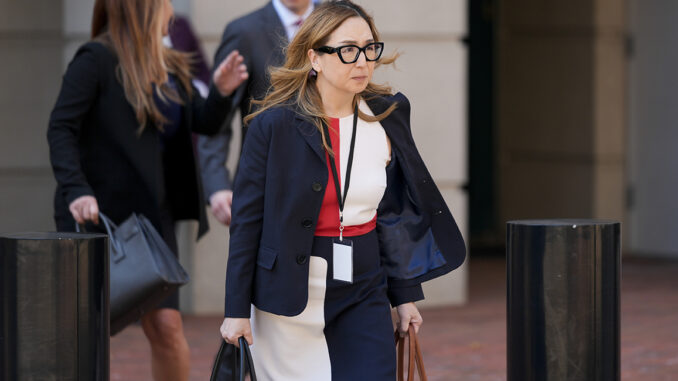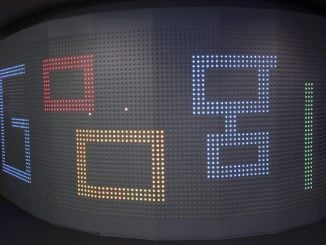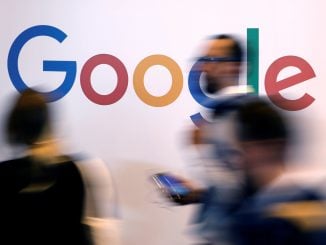
ALEXANDRIA, Va. — One month after a judge declared Google’s search engine an illegal monopoly, the tech giant faces another antitrust lawsuit that threatens to break up the company, this time over its advertising technology.
The Justice Department, joined by a coalition of states, and Google each made opening statements Monday to a federal judge who will decide whether Google holds a monopoly over online advertising technology. The regulators contend that Google built, acquired and maintained a monopoly over the technology that matched online publishers to advertisers. Dominance over the software on both the buy and sell sides of the transaction enables Google to keep as much as 36 cents on the dollar when it brokers sales between publishers and advertisers, the government contends in court papers.
“It’s worth saying the quiet part out loud,” Justice Department lawyer Julia Tarver Wood said during her opening statement. “One monopoly is bad enough. But a trifecta of monopolies is what we have here.”
Google says the government’s case is based on the internet of yesteryear when desktop computers ruled and Internet users carefully typed precise World Wide Web addresses into URL fields.
In her opening statement, Google lawyer Karen Dunn likened the government’s case to a “time capsule with a Blackberry, an iPod and a Blockbuster video card.”
Dunn said Supreme Court precedents warn judges about “the serious risk of error or unintended consequences” when dealing with rapidly emerging technology and considering whether antitrust law requires intervention.
According to Google’s annual reports, revenue has declined in recent years for Google Networks, the division of the Mountain View, California-based tech giant that includes such services as AdSense and Google Ad Manager that are at the heart of the case, from $31.7 billion in 2021 to $31.3 billion in 2023.
The trial that began Monday in Alexandria, Virginia, over the alleged ad tech monopoly was initially going to be a jury trial. Google maneuvered to force a bench trial, writing a check to the federal government for more than $2 million to moot the only claim brought by the government that required a jury.
The Virginia case follows a major defeat for Google over its search engine, which generates the majority of the company’s $307 billion in annual revenue. A judge in the District of Columbia declared the search engine a monopoly, maintained in part by the tens of billions of dollars Google pays each year to companies like Apple to lock in Google as the default search engine presented to consumers when they buy iPhones and other gadgets.
The judge has not yet imposed any remedies in the search engine case, and the government hasn’t offered its proposed sanctions. However, there could be scrutiny over whether Google should be allowed to continue making exclusivity deals that ensure its search engine is consumers’ default option.
In the Virginia trial, the government’s witnesses are expected to include executives from newspaper publishers, including The New York Times Co. and Gannett, and online news sites that the government contends have faced particular harm from Google’s practices.
“Google extracted extraordinary fees at the expense of the website publishers who make the open internet vibrant and valuable,” government lawyers wrote in court papers. “As publishers generate less money from selling their advertising inventory, publishers are pushed to put more ads on their websites, to put more content behind costly paywalls, or to cease business altogether.”
The government’s first witness was Tim Wolfe, an executive with Gannett, a newspaper chain that publishes USA Today as its flagship. Wolfe said Gannett feels it has no choice but to continue using Google’s ad tech products even though the company keeps 20 cents on the dollar from every ad purchase, not even accounting for what it takes from advertisers.
Google disputes that it charges excessive fees compared to its competitors. The company also asserts that the integration of its technology on the buy side, sell side and middle assures ads and web pages load quickly and enhances security. It says customers have options to work with outside ad exchanges.
Google says the government’s case needs to be properly focused on display ads and banner ads that load on web pages accessed through a desktop computer. It also needs to consider consumers’ migration to mobile apps and the boom in ads placed on social media sites over the last 15 years.
The government’s case “focuses on a limited type of advertising viewed on a narrow subset of websites when user attention migrated elsewhere years ago,” Google’s lawyers wrote.



